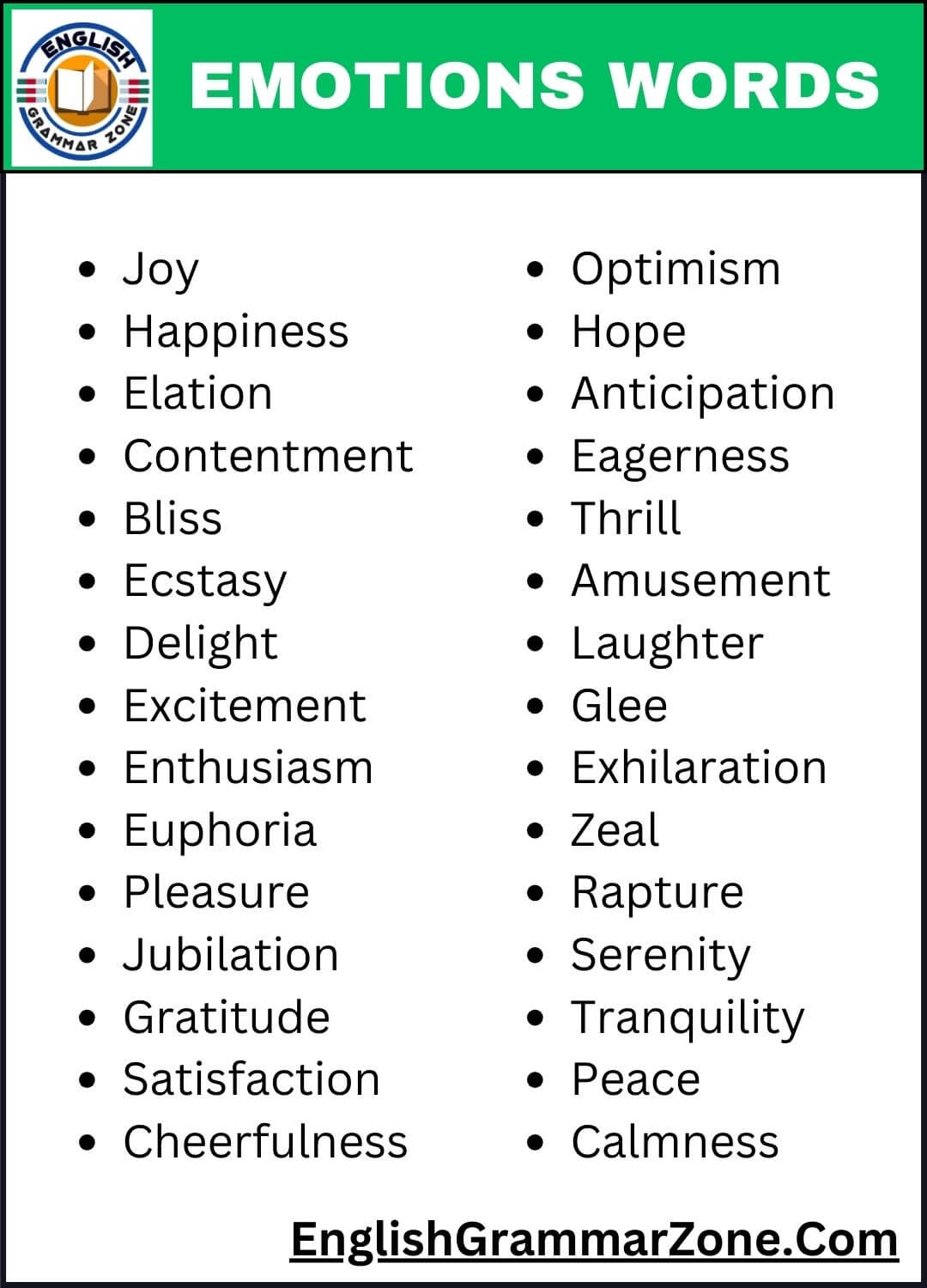Emotions play a crucial role in our daily lives, influencing our thoughts, behaviors, and interactions with others. One way to better understand and communicate our emotions is by expanding our emotional vocabulary. By having a diverse range of words to describe how we feel, we can more effectively express ourselves and connect with others on a deeper level.
Having a rich emotional vocabulary allows us to pinpoint and articulate our feelings with more precision. It can also help us navigate challenging situations, manage stress, and enhance our overall well-being. Here are some examples of emotional vocabulary that can help you better express yourself:
Emotional Vocabulary Examples
1. Ecstatic: Feeling intense happiness and excitement, like winning a lottery or achieving a long-awaited goal.
2. Melancholy: A deep, lingering sadness or sorrow, often accompanied by a sense of nostalgia or longing.
3. Anxious: Experiencing worry, fear, or unease about an uncertain future or impending event.
4. Envious: Feeling resentment or discontent towards someone else’s success, possessions, or qualities.
5. Grateful: Showing appreciation and thankfulness for the kindness, support, or blessings in your life.
Expanding your emotional vocabulary can help you better express yourself in various situations. For example, instead of simply saying you feel “bad,” you can use more specific words like “frustrated,” “disappointed,” or “overwhelmed” to convey your emotions more accurately. By being able to identify and label your feelings, you can also take steps to address them and work towards finding a resolution.
Moreover, having a diverse emotional vocabulary can improve your relationships with others. When you can effectively communicate your emotions, you are better equipped to connect with others on an emotional level and foster empathy and understanding. This can lead to stronger relationships and more meaningful interactions with those around you.
In conclusion, expanding your emotional vocabulary can have a profound impact on your emotional intelligence and overall well-being. By learning and using a variety of words to describe your feelings, you can better understand yourself, communicate effectively with others, and navigate the complexities of human emotions. So take the time to explore and incorporate new emotional vocabulary into your daily life, and see the positive difference it can make.
